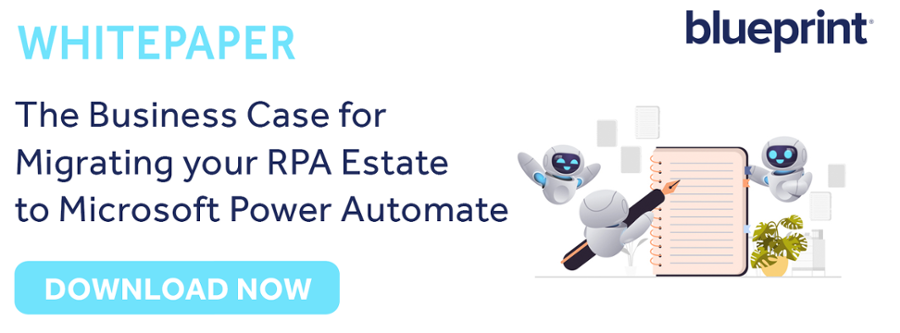Microsoft Unveils Power Automate Premium Licenses. What Does That Mean for You?
At a time when some legacy RPA vendors are raising their licensing fees, others are going a completely different direction and lowering theirs—or at least one is: Microsoft Power Automate.
Microsoft recently unveiled their Power Automate Premium Plan. In this article, we dive into what Microsoft’s Power Automate Premium license is and what it means for you and the entire RPA market.
What is Microsoft Power Automate Premium?
Microsoft Power Automate Premium is a new licensing plan that Microsoft recently released.
At a cost of $15 per user/month, this licensing plan enables users to design, develop, and deliver attended automated processes. Attended automations are automated processes that need to be triggered manually by users.
With this type of license, modern applications can be automated with API-based digital process automations—also known as cloud flows. Legacy apps can be automated with UI-based robotic process automation (RPA)—also known as desktop flows.
UI-based automation uses technology like screen readers to access a desktop’s user interface (UI) to perform the operations a user would when executing a process. UI-based automation imitates the user interacting with the user interface of an application that is part of a process that has been automated. UI-based automation is considered more fragile because user interfaces are subject to change when new versions of applications or browsers are released and shipped, potentially leading to errors and outages.
API-based automation relies solely on code to automate processes and therefore is a little more resilient and reliable when compared to UI-based automation.
Specifically, Microsoft’s Power Automate Premium licenses offer users the following permissions and capabilities:
- Unlimited attended Power Automate Desktop flows (robotic process automation)
- Unlimited attended Power Automate Cloud flows (digital process automation)
- 5,000 AI builder credits
- Full access to Microsoft Power Automate Process Mining
Why is Microsoft Power Automate Premium Significant?
Microsoft was already considered the most cost-effective RPA tool on the market. With the release of Microsoft’s updated licensing plans and pricing, Power Automate Premium has become even more cost-effective, further enticing organizations who have been considering moving their RPA estates to Microsoft Power Automate to reduce costs and decrease their automation total cost of ownership.
For the wider RPA market, as other leading vendors are raising their licensing fees and prices, Microsoft’s incredibly competitive pricing will lead to two possible outcomes:
- Other leading automation platforms and vendors will be forced to do the same and lower their prices
- The mass exodus from legacy RPA tools will intensify and accelerate as organizations look to leverage Microsoft Power Automate’s cost-efficiency, improved compatibility with enterprise architecture, and simplified ease of use to boost scale by fostering a citizen development approach to automation.
In addition, Microsoft Power Automate Premium is only one type of license that Microsoft offers.
Power Automate Process is also available for $150 per bot/month that enables users to design, develop, and deploy unattended desktop automations (RPA) or digital process automation flows that can be accessed by anyone in your organization.
Unattended automations are triggered automatically without any manual intervention or prompt required by a user.
Microsoft’s pricing structure, in addition to all the other benefits that Power Automate offers, has long made building a business case for migrating RPA estates to Microsoft Power Automate incredibly compelling.
For details on what that business case with all the cost-reduction, benefits, and potential returns switching to Microsoft Power Automate Premium promises, download the Business Case for Migrating Your RPA Estate to Microsoft Power Automate whitepaper.
Share this
Recent Stories

The Added Business Value Microsoft Power Automate Delivers

How Microsoft Power Automate Reduces the Total Cost of Ownership for Automation




